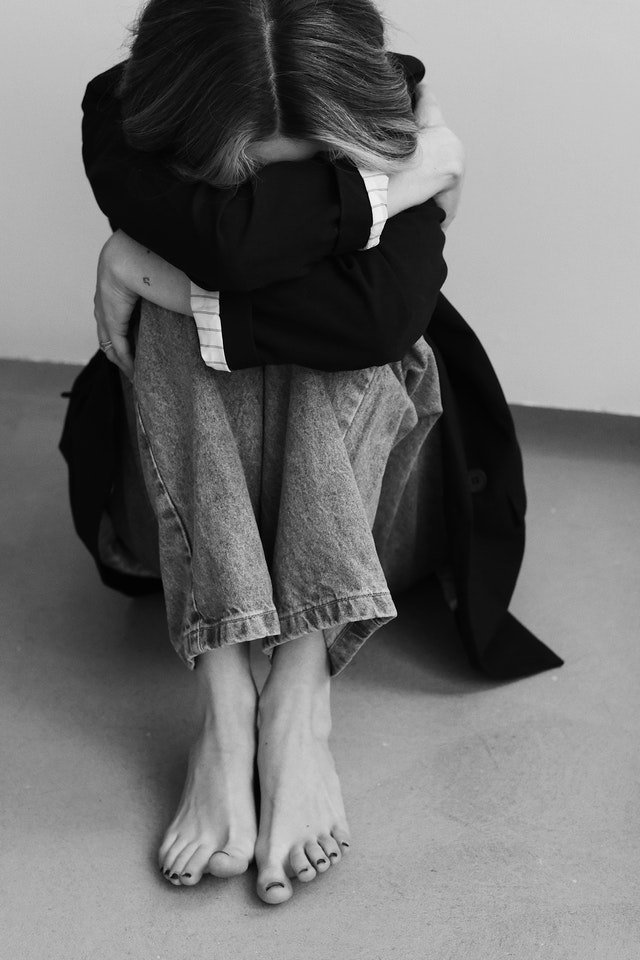Grief Counseling
Are You Having Trouble Coping With Overwhelming Grief And Loss?
Have you recently experienced a painful loss or difficult transition that is preventing you from moving forward with your life? Are you coping with the death of a parent, child, or loved one and finding it difficult to imagine a future in which you feel happy and hopeful again?
Perhaps you anticipate grief because you foresee yourself leaving a job, losing a home, or ending a marriage. Or maybe you or someone close to you has an illness or medical condition that is causing behavioral changes or intense emotions you don’t know how to address.
Coping with the loss of a loved one—whether it’s a parent, a child, a friend, or even a beloved pet—can be a painful and lonely experience. Even seemingly harmless events, such as leaving home for college or having an empty nest for the first time, can create a mix of emotions that may be difficult to process.
As a result, you may find yourself bouncing back and forth between anger, sadness, and profound loneliness. You likely feel lethargic and don’t have an appetite, perhaps choosing to drink or self-medicate at times. You may even be wondering What is wrong with me? Why can’t I just snap out of this? Is this pain even justified?
Key Counseling Group understands that everyone grieves at their own pace and in their own ways. We know that you are hurting, but with our compassionate support, it is possible to transform your sorrow into strength, understanding, and calmness as you move forward with life.
Grief And Loss Have No Definite Boundaries
Everyone experiences loss. It’s a universal part of the human condition that no one is immune to. And in that way, grief has no boundaries or finite definitions, often manifesting in various forms and affecting everyone differently.
Unfortunately, cultural forces often condition people to think that You just need to be strong or You got this! But unless an individual is taught by their family or community how to respond to grief in a healthy way, they’re not going to be prepared for the emotional aftermath of loss.
And although family and friends seem like an obvious source of relief, culturally, we are uncomfortable with death and just want things to go back to normal as fast as possible. That’s why friends and family often lack not only the professional knowledge to support us, but also the emotional bandwidth to help us grieve and reconcile feelings of loss over the long term.
The popular refrain of You’ll get through this all too often minimizes the depth of loss’s impact. What the grieving really need to hear is, “I will never understand what you’re going through, but I am here for you right now—and I will be here for you throughout this journey.”
And that is what we are here for—to provide you with compassionate support and impartial guidance until you can stand on your own and establish a sense of normalcy in your life.
Grief Counseling Allows You To Embrace And Honor Your Loss In Healing
The therapeutic process is always most effective when a person is given a safe, non-judgmental space to be vulnerable and gain insight into their suffering. That’s exactly what our grief therapy sessions provide.
Working with a therapist gives you a place to process your grief, honor your loss, and develop a greater awareness of yourself in the process. And the more internally aware you become, the less vulnerable you will be to future distress.
First and foremost, we want you to understand that while grief is universal, your pain is unlike anyone else's—unique and personal—and we will never compare your experience to that of another. And rather than using a step-by-step approach to therapy, we look at loss like a wilderness that needs to be navigated by embracing your pain and walking through your grief so you can ultimately move forward in peace.
During our intake session, we’ll briefly cover company policies and client confidentiality, assess your personal history, and identify the concerns that bring you to grief counseling. Then, we’ll provide you with some psychoeducation about grief and an overview of our style and framework for healing.
In later sessions, we’ll explore your emotional attachment to and your history with the subject of your loss. Specifically, we’ll identify the internal parts of you that are affected the most—the scared parts, lonely parts, catastrophized parts, or angry parts. In the process, you can gain a deeper understanding of your pain and your emotional responses to grief so that you can better regulate yourself physically and mentally.
We take a person-centered approach to therapy for grief and view the healing process as companioning the griever—that is, sitting side-by-side with individuals as they navigate the vast wilderness that is their grief.
And though you’ll be met with compassion and empathy, you’ll also experience a certain amount of tough love, honesty, and expectations for accountability, which can be more powerful than merely conversing and receiving feedback. We’ll also give you exercises to identify values, explore beliefs, and create a foundation for living. And you’ll learn practical skills for recognizing, defining, and processing your emotions.
Whatever you are going through—no matter how much pain you are in—grief counseling can offer you validation for your feelings and the opportunity to heal and grow beyond the past. All you have to do is trust in the process and be willing to remain present in your loss so you can change the paradigm of your experience and begin living and thriving once again.
Perhaps you are considering grief counseling, but you still have some concerns…
I’ve dealt with loss before, so why am I not strong enough to overcome this?
Our culture promotes this expectation that individuals and families should naturally know how to respond to grief and loss without counseling. However, a vast majority of people do not even understand the concept of grief—let alone their own grief. So going at it alone can be demoralizing.
The truth is, every loss is unique. The deeper the attachment, the more profound and emotional the loss. So it’s not a weakness you are experiencing; it’s simply a lack of resources for support. And that is what we are here for.
What makes you different from other therapists when it comes to grief counseling?
We probably view grief and sorrow a bit differently than most counselors—that is, we look at suffering as an opportunity for learning and growth. That’s why we often focus on identifying any wounded internal parts of the self that are triggered by loss while developing ways to mitigate that pain.
Our approach to therapy teaches you how to lean into your grief—to stop fighting it and start sharing your story. By doing so, you give yourself the chance to mourn openly, grieve authentically, and heal in ways you may never have thought possible.
Do your counseling services only address bereavement/death loss?
We believe that grief and loss have no boundaries, so our work covers all areas of suffering. That includes disenfranchised grief—or situations in which a person feels like their experience doesn’t fit into society’s typical definition of “real” loss.
At Key Counseling Group, we realize that injuries, illnesses, changes in relationships, or the loss of a job or a pet are all significant experiences that can create intense grief and suffering. Through our work, we hope to broaden the conversation around loss and the importance of seeking help no matter the circumstances.
Let Us Help You Find Your Way Through The Wilderness Of Grief
If you are coping with the loss of a loved one and want to find solace amid the sorrow, we can guide you toward peace and a sense of normalcy. Contact us today for a free consultation call to find comfort, connection, and a path forward through your grief.
Contact Us Today:
Therapists Who Can Help
Recent Posts
Grief Counseling in Poncey-Highland
675 Seminole Ave NE STE 111,
Atlanta, GA 30307
Grief Counseling in Virginia-Highland
600 Virginia Ave NE 2nd Floor, STE 2, Atlanta, GA 30306
Grief Counseling in Decatur, GA
321 W Hill St., STE 9,
Decatur, GA 30030
Grief Counseling in Roswell, GA
2002 Macy Dr,
Roswell, GA 30076














